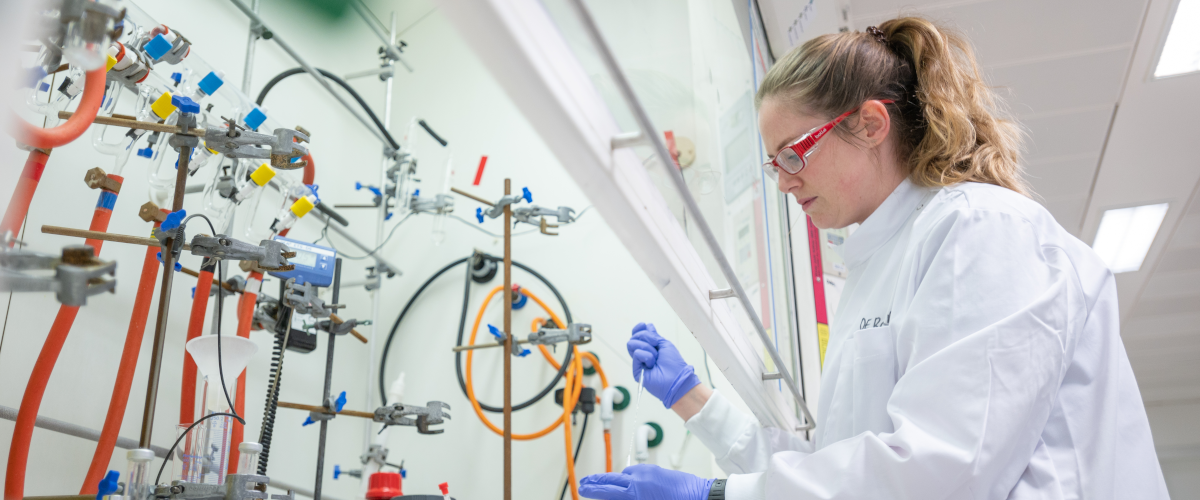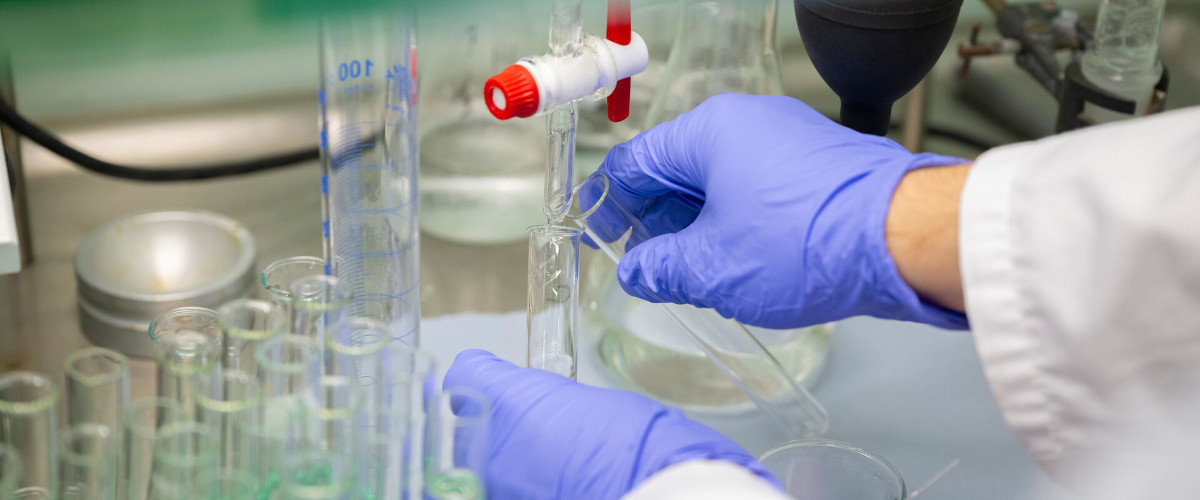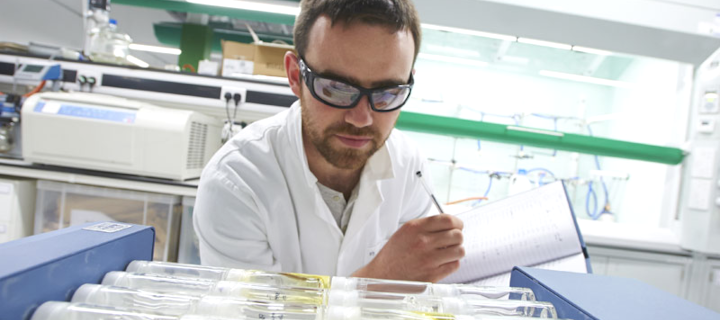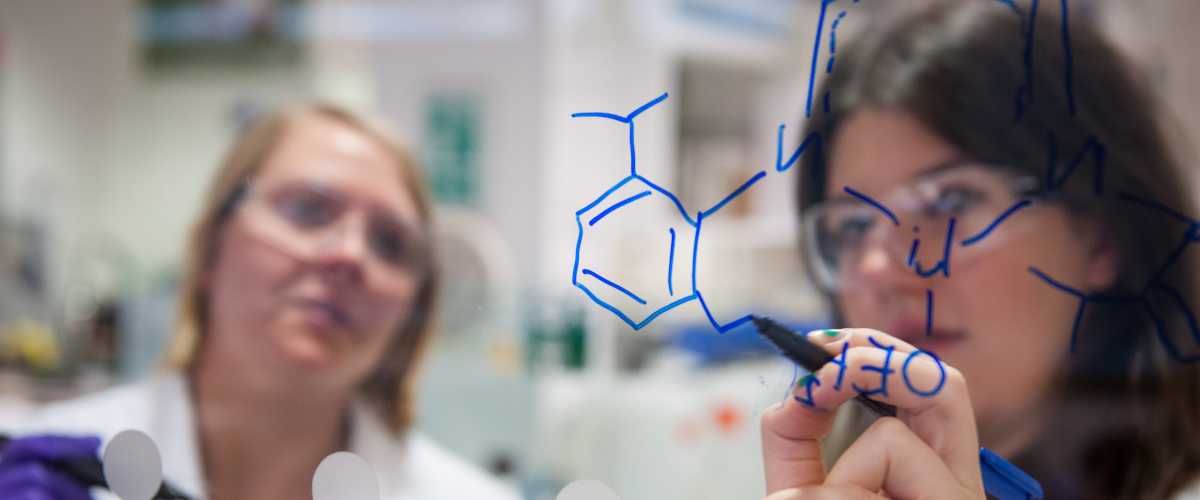CSHP CDT Admissions – FAQs
What academic background do I need?
We are looking for people with a relevant science degree (BSc, MSc, MChem, MRes, etc.) and ideally prior involvement in a project in organic synthetic chemistry.
Do I need to select a supervisor?
Yes – as part of your application, you are asked to select a 1-2-3 choice of potential projects (with their corresponding supervisors) from the list provided for that year.
Applicants will need to apply directly to the host institution of their preferred projects. You can select a maximum of three projects, which could be all at one institution or a balance between the two.
What if I choose projects from Oxford and York?
Applicants will need to apply directly to the host institution of their preferred projects. If you are interested in projects from both institutions, you will need to submit separate applications to the CSHP CDT for both Oxford and York listing your three selected projects. Please note you can only select a maximum of three projects in your CDT application, which could be all at one institution or a balance between the two. Details how to submit these can be found here.
When will my application be evaluated?
Applications to the programme will be assessed jointly by members of the CDT leadership team in Oxford and York, in accordance with the University of Oxford's postgraduate applicant privacy policy and the University of York's privacy notice for student applicants.
Applications will be evaluated in batches, to coincide with the CDT's application deadlines (for 2026/27 entry, 14 Nov and 8 Jan).
Applications received by the November deadline will be evaluated all together, shortly after the deadline, and considered for our first round of interviews. Applications received later in the year, by the January deadline, will be assessed in later January for the second round of interviews.
Applications to the March deadline and Open Field will be considered if spaces remain available.
When should I apply?
The first application deadline is 14th November. We will continue to receive applications following this deadline, however some of the projects may be filled following the assessment of the first round of applications. We therefore encourage you to submit your application early to ensure that your first choice project is available.
The second application deadline is 8th January. An updated project list will be published in early December.
How will applications be assessed?
Applications will be assessed against the following criteria: i) past track-record of academic achievement, ii) references, iii) motivation and aptitude/fit for the CDT programme. Each of the three categories will have an equal weight.
When are interviews held?
Interviews are held online as part of the CSHP CDT admissions process. At least two rounds of interviews will be held – one in December for the applications received during the November deadline, and one in February for applicants to the January deadline.
Additional interviews during the year may be considered if spaces remain available.
*For 2026-27 entry, interviews for applicants to the November deadline are planned for w/c 8th December. Interviews for applicants to the January deadline will take place in late January.
What can I expect from the interview?
If shortlisted, you will be given one 40-minute technical panel interview with at least two academics of the programme, together with 20-minute meetings with potential supervisors from your selected projects.
The panel interview will consist of a brief presentations and related discussion: firstly, you will be asked to present an overview of a research project you are or have been recently involved in; the second presentation will be on a scientific paper that we will provide beforehand. There will also be questions from the panel about the programme and project choices, and a synthetic chemistry problem solving exercise.
During the panel interviews, you will be evaluated both on your ability to present and communicate research as well as your technical knowledge. Performance at the panel interviews will be used to create a ranking of candidates, while the meetings with potential supervisors are intended to assess your suitability for the relevant project.
When are offers made?
Offer are made throughout the year, normally a couple of weeks after each round of interviews.
How are projects allocated?
As part of the interview process, candidates will be able to meet with the supervisors of the projects they previously selected.
Projects will be allocated to successful applicants based on their scoring during the interview process, with the highest-scored candidates being assigned their preferred projects first. The list of projects will be updated on the website throughout the year, as offers are made and projects are no longer available.
Oxford-specific FAQs
What is a DPhil?
DPhil is the Oxford equivalent of a PhD. Both ‘PhD’ and ‘DPhil’ are abbreviations for ‘Doctor of Philosophy’.
Should I choose a College?
The CDT has forged partnerships with some of the colleges in the University, who very kindly reserve spaces for students in the programme. We recommend that you leave the College option open during your application; these will be assigned later in the process.
How do I submit my references?
As part of your graduate application you will be asked to register the contact details of three referees. You will need at least two references submitted in time for the deadline, so your application can be considered ready for assessment. You are still encouraged to obtain a third reference as early as possible, so that it can be taken into consideration when your application is assessed.
Your references should usually be academic, but including one professional reference (e.g. from industry) is also acceptable.
Can I apply to multiple programmes?
Applicants for Centres for Doctoral Training (CDT) courses who have paid the fee of £20 for one eligible application, are entitled to apply for up to two closely related courses without paying any additional application fees. You will need to submit a full and separate application for each course.
If you wish to submit an additional application for a related programme, please see Applying to closely related research courses for more information.
York-specific FAQs
Can I apply to multiple projects in one application form?
Only one application per PhD programme should be submitted. You can apply for more than one project on the same application by listing the projects in the Research Proposal section.
Do I need to submit a research proposal?
There is no need to provide a full research proposal. Please state your choice of CDT projects by order of preference in this section, as well as in your personal statement.
How do I submit my references?
As part of your graduate application you will be asked to register the contact details of two referees. The references will need to be submitted in time for the deadline, so your application can be considered ready for assessment.
Your references should usually be academic, but including one professional reference (e.g. from industry) is also acceptable.
Funding eligibility
Subject to normal EPSRC rules, UK students and Irish nationals living in the UK or Republic of Ireland are eligible for fully-funded studentships, including a stipend (£20,780 p.a. for 2025/26) and course fees throughout their 4-year course.
As a result of the UK’s decision to leave the EU, most students from the EU who start a programme of study from 2021/22 onwards will pay fees at the ‘Overseas’ rate. Students from the EU, EEA and Switzerland who have been granted settled or pre-settled status under the EU Settlement Scheme may be eligible to pay fees at the Home rate if they meet the residence requirements.






